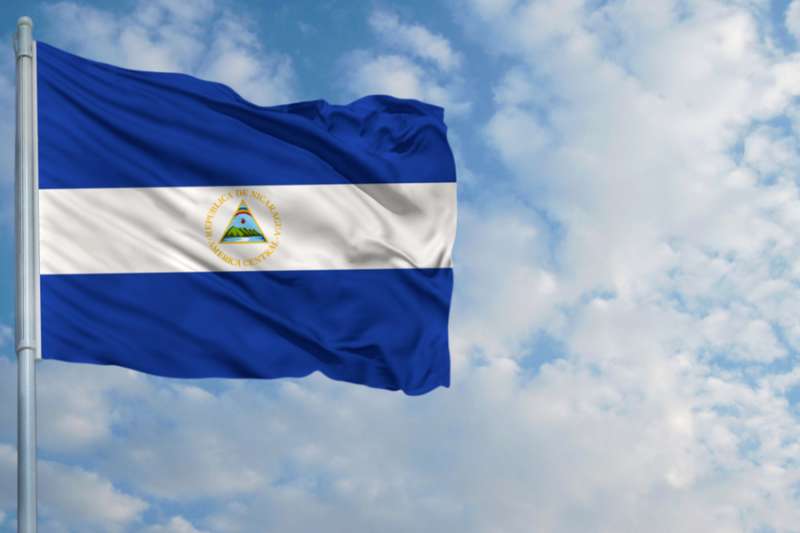A Nicaraguan priest has called on the international community to intervene to prevent the massacre of protesters by the country's government and its paramilitary supporters.
Protests against president Daniel Ortega which began April 18 have resulted in more than 300 deaths, according to local human rights groups. The country's bishops have mediated on-again, off-again peace talks between the government and opposition groups.
Fr. Augusto Gutierrez, a parish priest in the Monimbó neighborhood of Masaya, fewer than 20 miles southeast of Managua, was recently interviewed by the Spanish radio network COPE. Masaya has been at the center of the country's protests.
Due to government pressure, the priest is in hiding since he has received numerous threats.
“We've gotten death threats because they say we're the ringleaders of this situation, but we have been out in public because what the government of Daniel Ortega is doing is unjust. This is a genocide because there's no other name for it,” Fr. Gutierrez said.
The priest appealed: “Don't let us die. Please, intervene, do something.”
On July 17 the indigenous neighborhood of Monimbó was attacked by paramilitaries with ties to president Daniel Ortega.
In the interview, the priest said that the paramilitaries carried out a four hour attack in Monimbó: “with heavy military weapons, they're desecrating churches and destroying lives.”
The priest explained that the Monimbó neighborhood is made up of simple people and that “for three months the government has lashed out against the population all over Nicaragua, including Monimbó, which has remained steadfast with great courage. But now they're killing us.”
With regards to statements made by the Archbishop of Managua, Cardinal Leopoldo Brenes, during another interview with the COPE radio network, Fr. Augusto said that “he supports everything that the Church and the bishops are saying. But they (Ortega's government) no longer want to listen to reason, so there has to be international support to intervene and save the country.”
“This is not war because the people are defending themselves with what they can, roadblocks, stones, makeshift mortars. They (the government) are determined to celebrate July 19 over the blood of the people. And they can't keep on governing over the dead and ordering to kill,” he stated.
July 19 marked the 39th anniversary of the ouster of the Somoza dictatorship by the Sandinista National Liberation Front, of which Ortega is the leader.
La Vanguardia news reported July 20 that at a pro-government celebration attended by thousands of supporters that day, Ortega charged the Nicaraguan Bishops' Conference with complicity in a coup attempt. He based his accusation on the bishops' proposal that he hold early presidential elections in March 2019.
The president challenged the Organization of American States and called on his followers to “not let down your guard” and to exercise“self-defense” in the midst of the grave crisis rocking the country.
Ortega said that he is the victim of “a conspiracy armed and financed by internal and external forces,” and disqualified the bishops as mediators in the crisis because they have “taken sides.”
In a July 14 statement, the Nicaraguan Bishops' Conference denounced “the lack of political will by the government to dialogue” and seek real processes that would lead the country to a true democracy.
Finally, Fr. Gutierrez stated that Nicaragua is “in a state of emergency,” and that an “anti-terrorist” law was recently passed such that “all those who support the men at the roadblocks, or according to [the government] are collaborating against them, they're going to put on trial.”
Barricades and roadblocks are now found throughout Nicaragua, and clashes frequently turn lethal. Bishops and priests across the country have worked to separate protesters and security forces, and have been threatened and shot.
Nicaragua's crisis began after Ortega announced social security and pension reforms. The changes were soon abandoned in the face of widespread, vocal opposition, but protests only intensified after more than 40 protestors were killed by security forces initially.
Anti-government protesters have been attacked by “combined forces” made up of regular police, riot police, paramilitaries, and pro-government vigilantes.
The Nicaraguan government has suggested that protestors are killing their own supporters so as to destabilize Ortega's administration.
The Church in Nicaragua was quick to acknowledge the protestors' complaints.
The pension reforms which triggered the unrest were modest, but protests quickly turned to Ortega's authoritarian bent.
Ortega has been president of Nicaragua since 2007, and oversaw the abolition of presidential term limits in 2014. He was also leader of Nicaragua from 1979 to 1990.

